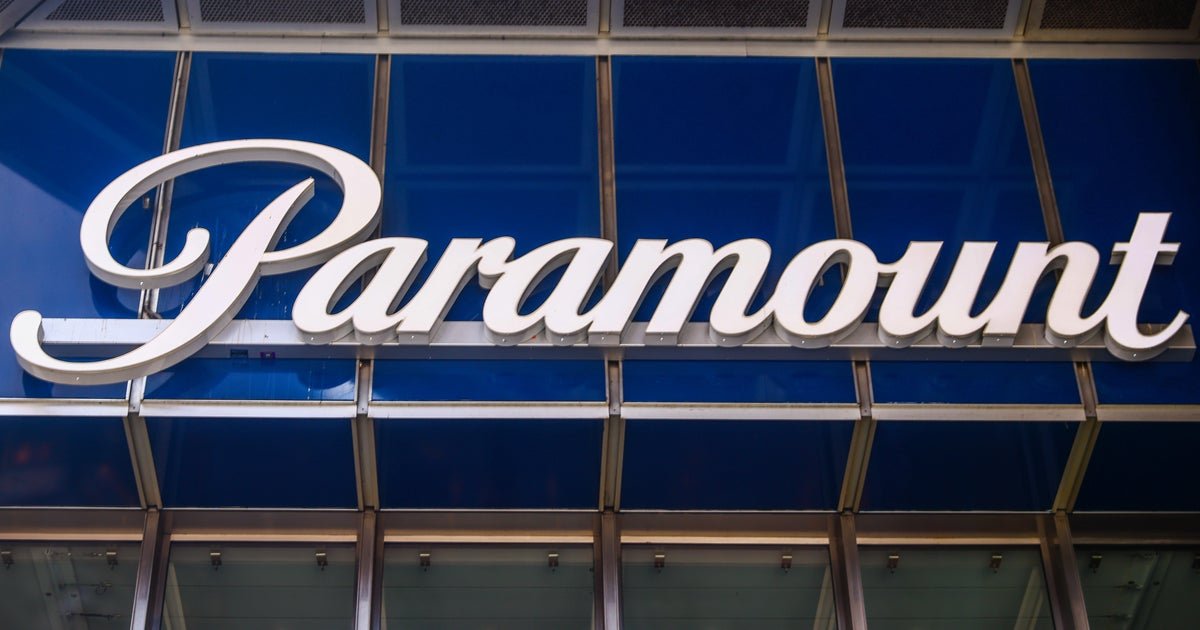Paramount will settle President Trump’s lawsuit over a “60 Minutes” interview with Kamala Harris for $16 million, the company announced late Tuesday.
CBS News’ parent company worked with a mediator to resolve the lawsuit. Under the agreement, $16 million will be allocated to Mr. Trump’s future presidential library and the plaintiffs’ fees and costs. Neither Mr. Trump nor his co-plantiff, Texas Rep. Ronny Jackson, will be directly paid as part of the settlement.
The settlement did not include an apology.
Paramount also agreed that “60 Minutes” will release transcripts of interviews with presidential candidates in the future, “subject to redactions as required for legal or national security concerns,” the statement said.
Mr. Trump’s lawsuit, filed last October when he was still a candidate for president, was widely viewed as an attack on the First Amendment. He took issue with CBS News airing two different portions of Harris’ response to a question about the Middle East, one in an early excerpt on “Face the Nation” and the other on the full broadcast of “60 Minutes.”
The lawsuit was filed in Amarillo, Texas, a portion of a federal district court where the sole judge is a 2019 Trump appointee, and it was based on a state consumer protection law that is intended to prevent advertisers from misleading the public about a product being sold. CBS News is not headquartered in Texas, nor did the interview take place there.
He initially sought $10 billion in damages when he filed suit last October but upped his demand to $20 billion in February after adding a federal claim alleging false advertising and unfair competition. Jackson, a Texas Republican, joined Mr. Trump as a plaintiff in the amended complaint.
Paramount has maintained that the lawsuit was completely without merit and that “60 Minutes” followed a standard editing process. The show’s executive producer, Bill Owens, stood behind the show’s interview and said he would not apologize. He announced in April that he would depart the network, citing a loss of editorial independence.
Weeks later, Wendy McMahon, who served as president and CEO of CBS News and Stations and CBS Media Ventures, announced she was also departing. “It’s become clear that the company and I do not agree on a path forward,” she wrote in a note to staffers.
First Amendment scholars and constitutional experts largely viewed the lawsuit as a frivolous misapplication of the law.
Geoffrey R. Stone, a First Amendment scholar and law professor at the University of Chicago, explained, “That statute is about sales — a salesperson can be held liable for stating that a product has certain positive effects when he knows it doesn’t. But CBS is not engaged in advertising here.”
Constitutional law expert and Harvard professor Noah Feldman called the case an “outrageous violation of First Amendment principles.”
Politicians had also spoken out about the suit, urging Paramount Global Chair Shari Redstone not to settle. The day after McMahon announced her departure, Senators Bernie Sanders, Elizabeth Warren and Ron Wyden sent a letter to Redstone raising concerns that efforts to settle with Mr. Trump would amount to bribery. Redstone had recused herself from settlement talks.
In an April Truth Social post, Mr. Trump said he was “honored” to be suing CBS and Paramount. He also urged Federal Communications Commission Chair Brendan Carr to “impose the maximum fines and punishment” against CBS in connection with a news distortion complaint, which was filed by a conservative group over the same Harris interview. Outgoing FCC Chair Jessica Rosenworcel dismissed the complaint in January before former President Biden’s term ended, but Carr reopened it days after Mr. Trump took office and appointed him to the role.
Back in February, CBS complied with an FCC inquiry to hand over the transcript and videos from the Harris interview, simultaneously releasing those files to the public.
CBS sought dismissal of the FCC complaint in a March filing, writing, “The Complaint filed against CBS for ‘news distortion’ envisions a less free world in which the federal government becomes a roving censor — one that second guesses and even punishes specific editorial decisions that are an essential part of producing news programming.”
The news distortion complaint remains open and under investigation.
The FCC’s approval is necessary for Paramount’s $8.4 billion merger with Skydance Media to move ahead, and the agency didn’t make a decision on the transaction by the informal 180-day deadline to review mergers, which passed in May. Carr said Thursday that the FCC was still reviewing the transaction.
If completed, the Paramount-Skydance merger will cap off a long, turbulent sales process that attracted multiple potential bidders. Talks between Skydance and Paramount’s corporate parent, National Amusements, were briefly called off before the sides resumed negotiations and clinched a deal in July 2024.
